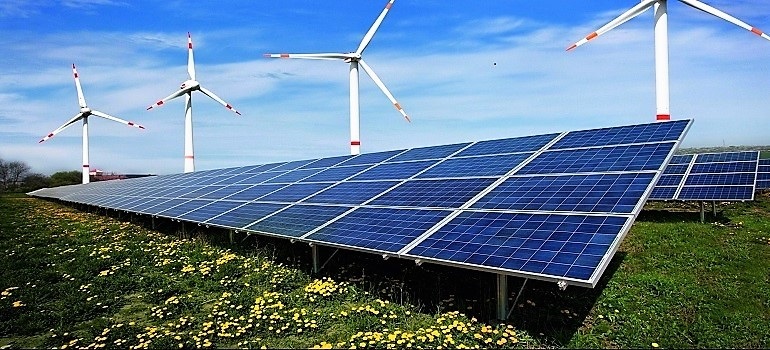 Wind and solar energy in India are now outpacing fossil fuels as investment opportunities providing on average 12 per cent higher annual returns, 20 per cent lower annual volatility and 61 per cent higher risk-adjusted returns than coal and natural gas, reports said on Friday.
Wind and solar energy in India are now outpacing fossil fuels as investment opportunities providing on average 12 per cent higher annual returns, 20 per cent lower annual volatility and 61 per cent higher risk-adjusted returns than coal and natural gas, reports said on Friday.
Investors also increasingly see renewable energy as less risky than fossil fuel energy, even though wind and solar are new entrants in the energy mix.
This is predominantly because of shortcomings that impact profitability of the fossil fuel energy sector in India, such as sourcing issues, import dependency, long construction periods, environmental regulations and more recently low plant load factors and stranded coal and gas power plants.
These are findings from a new series of reports titled “An Assessment of India’s Energy Choices” led by Climate Policy Initiative (CPI), the Indian School of Business (ISB), Jawaharlal Nehru University (JNU) and the Indian Institute of Technology (IIT Delhi).
The series looks at the future of renewable energy in India along different economic dimensions.
From a broader macroeconomic perspective, the studies published under this initiative find that there is a close relationship between economic growth in India and renewable energy growth.
For example, higher renewable energy generation corresponds to lower unemployment, fewer net energy imports, a lower fiscal deficit and a higher GDP over the next 25 years.
Econometric analysis of realistic renewable energy deployment out to 2042 shows that India could add between two million and 4.5 million jobs in wind and solar.
Despite these strong economic signals, however, the studies indicate that to meet the official target of renewable energy capacity of 175 GW by 2022, India needs to focus more on strong renewable energy policies and also on strong macroeconomic policies.
“Assessing the various direct, indirect, and external costs and benefits of all energy resources will reflect the significance of renewables for India’s energy future,”, Shakti Sustainable Energy Foundation CEO Krishan Dhawan said in a statement.
Shakti Sustainable Energy Foundation works to facilitate India’s transition to a cleaner energy future.
“Our work shows that meeting India’s renewable energy targets is clearly associated with positive impacts for India’s economy,” said CPI India Director Gireesh Shrimali.
“Unfortunately, while it is likely that the sector will continue to grow, there are a range of barriers to it reaching its full potential.”
The studies indicate that India should prioritize policies that support a strong fiscal environment.
As renewable energy growth is so closely related to economic growth, and vice versa, India can take steps to meet both clean energy and growth goals by focusing not only on strong renewable energy policies but also on strong fiscal policies.
The authors recommend that policymakers work to address the main investment risk factors for renewable energy.
The study also suggests a near-term path that transitions coal plants to flexibility assets.
CPI’s research points out that as renewable penetration grows, overall economic risk of stranding existing fossil fuel assets also increases at the same time that there will be a greater need for flexibility to provide base-load power.
Source: IANS


